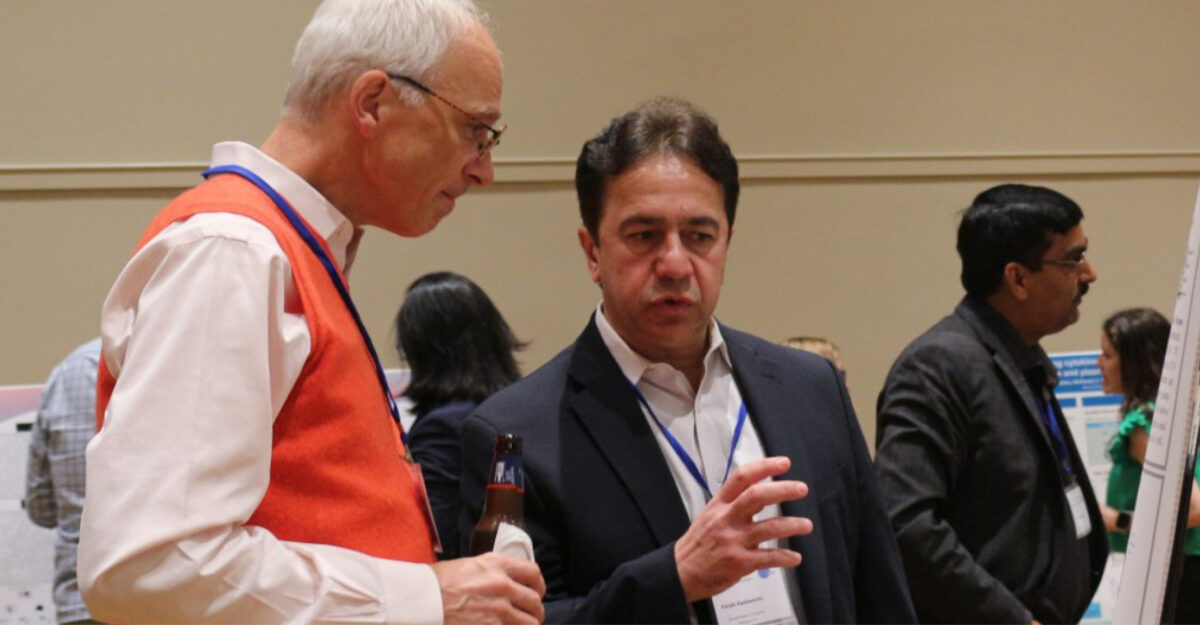TREASURY
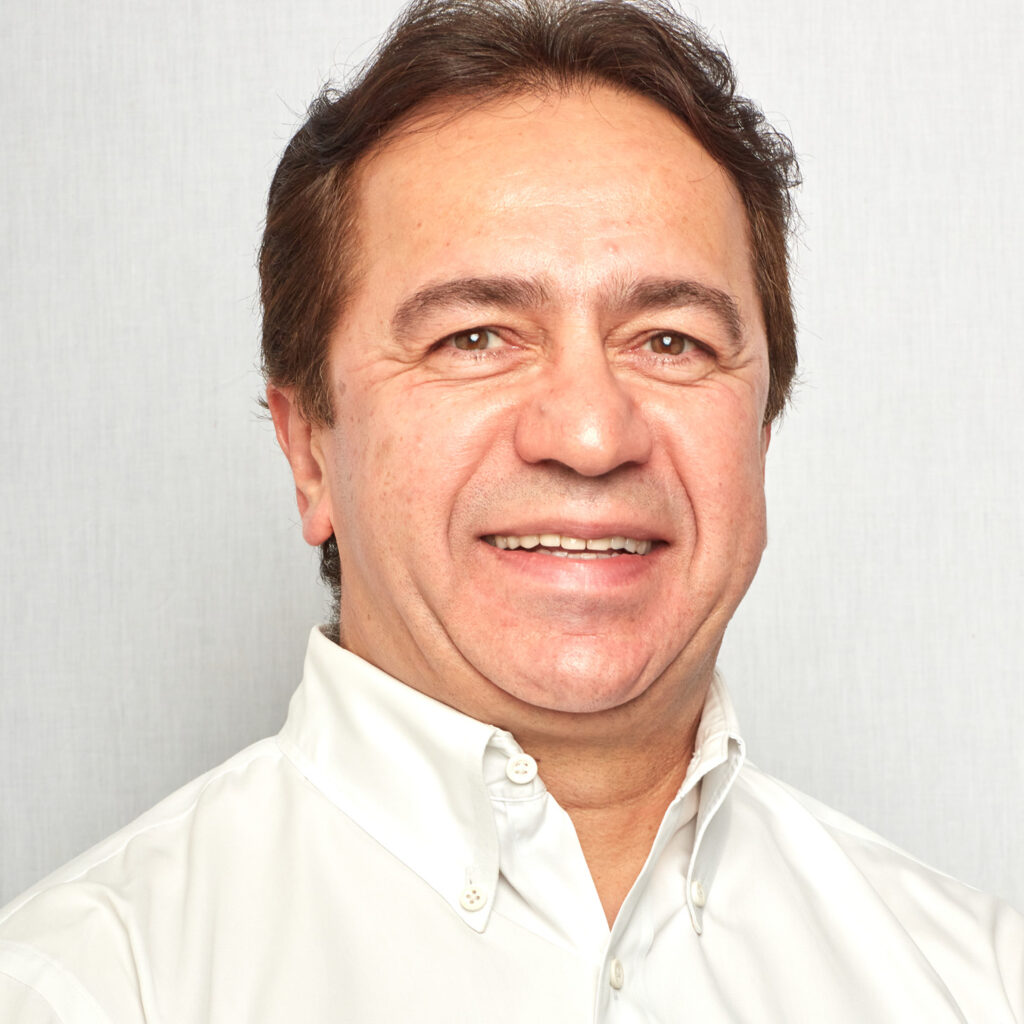
CHAIR: Fatah Kashanchi, PhD. Professor of Virology
Director of the Laboratory of Molecular Virology
George Mason University (GMU)
PhD, 1991, Microbiology
University of Kansas
Dr. Kashanchi studied HIV-1 gene expression, B-cell development, and gp120 ELISA under Dr. C. Wood, a student of the Nobel Laureate, Dr. Tongawa. After serving as a Postdoctoral and Research Associate Fellow at the National Cancer Institute, National Institutes of Health, he was tenured as a full professor at the George Washington University School of Medicine in 2004. In 2010, Dr. Kashanchi joined GMU as director of research until his current position as the Director of the Laboratory of Molecular Virology located at the GMU- Sci-Tech campus. His lab has published more than 250 peer-reviewed manuscripts (h-index = 70) and has served on more than 150 NIH and other government study sessions.
Research Interests: Human retroviruses; Biodefense viral agents; Cell cycle; Host-pathogen interactions; Small molecule and peptide inhibitors against transcription machinery; RNAi machinery and its components; Proteomics and metabolomics; Humanized mouse models; Extracellular vesicles including exosomes.
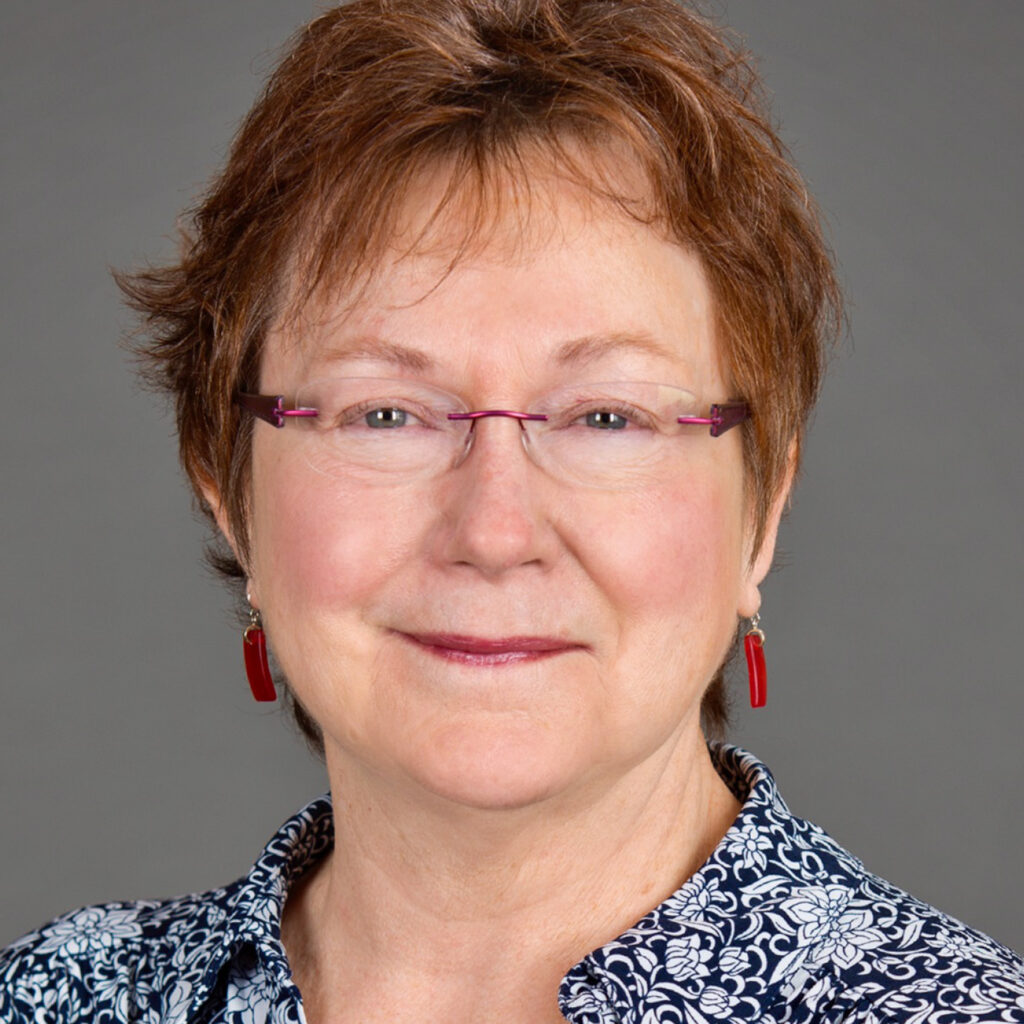
CO-CHAIR: Julie Saugstad, PhD. Professor, Department of Anesthesiology & Perioperative Medicine, Affiliate Faculty, Department of Molecular & Medical Genetics
Oregon Health & Sciences University
PhD, 1991, Biochemistry & Molecular Biology
University of Oklahoma Health Sciences Center
Dr. Saugstad cloned the genes for mouse metabotropic glutamate receptors 7 and 8 (mGluRs), then studied the regulation of signaling by mGluRs. Her lab was the first to show that miRNAs are differentially regulated by ischemic preconditioning in mouse brain, and the first to show a miRNA signature common to males and females in stroke, and conversely that distinct miRNAs are regulated by stroke in male vs. female mouse brain. Her studies were also the first to identify miRNAs that discriminate Alzheimer’s disease (AD) from controls in cerebrospinal fluid (CSF) from living donors, that combinations of miRNAs serve as sensitive and specific biomarkers for AD, that adding a reference marker (such as APOEɛ4 genotype) and CSF Aβ42:T-Tau ratios to miRNA combinations increases classification performance for AD, and that a subset of miRNAs show a linear trend of decreasing median expression from controls to mild cognitive impairment to AD. Her current studies have shown that the AD miRNAs in CSF work better to discriminate AD from controls in plasma, and her studies have now expanded to include the role(s) of extracellular vesicles and their cargo in AD and neurodegenerative diseases.
Research Interests: Cellular and molecular mechanisms of signaling in the brain; Role of microRNAs in CSF and plasma as AD biomarkers; Contribution of EVs and their cargo as mediators of intercellular communication and their potential role in altered signaling in dementia.
SECRETARY

CHAIR: Navneet Dogra, PhD. Assistant Professor, Genetics and Genomic Sciences and Pathology, Molecular and Cell Based Medicine, Member of the Icahn Genomics Institute
Mt. Sinai Hospital
PhD, 2014, Chemistry & Biochemistry
Southern Illinois University
Dr. Dogra has held positions at IBM Research and Yale University to drive translational research in “liquid biopsy in cancer” and “drug delivery” by bringing together clinical experimental oncology and the development of novel tools for the biosensing of genetic markers. Dr. Dogra recently filed for two US patents relating to “exosomes nanoparticles assisted drug delivery” and “tumor heterogeneity”.
Research Interests: Exosomes and extracellular vesicles; Cell-Free DNA, RNA; Proteins, bioengineering, and viruses.

CO-CHAIR: Heather Branscome, MS, PhD. Research Associate
George Mason University
PhD, 2020, Biosciences
George Mason University
Dr. Branscome’s primary research interests include the advanced purification of EVs and the functional analysis of stem cell EVs in the context of CNS repair. She began her career at the American Type Culture Collection in 2007 and has over 14 years of cross-functional experience in both cell and molecular biology.
Research Interests: Large-scale biomanufacturing; Exosomes/extracellular vesicles isolation; iPSCs and their derivatives, and Cell-based assays.
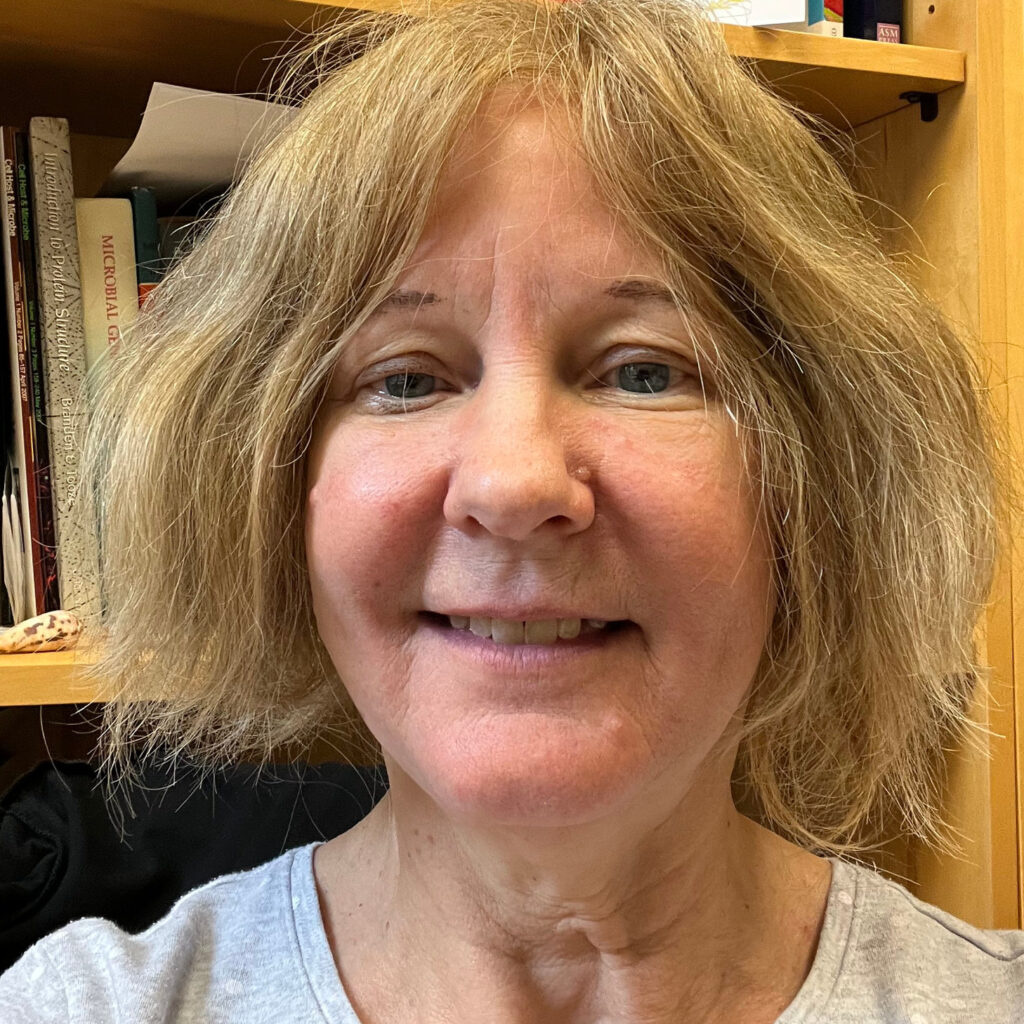
ALT-CHAIR: Meta Kuehn, PhD. Associate Professor, Duke University
PhD, 1993, Molecular Microbiology and Pathogenesis
Washington University, St. Louis
Dr. Kuehn completed her doctorate training under Dr. Scott Hultgren, investigating the molecular basis for chaperone-mediated P pilus assembly, and structure in uropathogenic E. coli. In 1994-97, she was a Damon Runyon-Walter Winchell and HHMI-funded postdoctoral researcher in the UC Berkeley lab of Nobel Laureate, Dr. Randy Schekman, where she investigated protein cargo incorporation by the COPII-mediated endoplasmic reticulum secretory vesicle pathway in S. cerevisiae.
In 1997, Dr. Kuehn received the Burroughs Wellcome Career Award and began her faculty position at Duke University’s Department of Biochemistry, with a secondary appointment in the Department of Molecular Genetics and Microbiology. She was named a Burroughs Wellcome Investigator in 2002 for her research on the Pathogenesis of Infectious Diseases.
Dr. Kuehn has been the Director of Graduate Studies for Duke’s Cell and Molecular Biology Program and the Biochemistry Department. During her tenure, she has also been one of three co-coordinators for the Duke Summer Research Opportunities Program, where she promotes the inclusion and training of underrepresented minorities in graduate research.
Research Interests: Biogenesis, composition, and function of bacterial membrane vesicles (MVs) in disease and inflammation; Mechanism of cargo inclusion into bacterial MVs; Measuring how bacterial MV-carried mediators impact bacterial biofilms; Surface-to-surface relationships of bacterial MVs in the environment.
MEMBERSHIP

CHAIR: Chioma Okeoma, PhD. Professor & Vice Chair of Research, Department of Pathology, Microbiology & Immunology
New York Medical College and Fellow, Lovelace Biomedical Institute
PhD, 2006, Animal Sciences
Massey University, New Zealand
Dr. Okeoma’s research focuses on understanding the biology and functions of extracellular particles, including EVs and extracellular condensates (ECs). Specifically, she studies how EVs and ECs regulate host responses to drug abuse, cancer, and viral infections such as HIV. She has also developed tools to facilitate and aid research in the field of extracellular condensates.
Research Interests: Biology and functions of extracellular particles including EVs and ECs involved in immune regulation and host responses to drug abuse, cancer, and viral infections.

CO-CHAIR: Susmita Sil, PhD. Assistant Professor, Department of Pharmacology & Experimental Neuroscience
University of Nebraska Medical Center
PhD, 2016, Neuoscience, University of Calcutta, India
Dr. Sil investigates the regulatory role of long non-coding RNAs on drugs of abuse/HIV in glial cells mediated neurodegeneration involving extracellular vesicles. Some of her recent studies focused on the HIV-associated co-morbidity of Alzheimer’s Disease. She has shown that HIV & opiates can induce astrocytic amyloidosis through a novel interaction of hypoxia-inducible factor-1 with long non-coding RNA BACE1-AS. Dr. Sil has published in 46 high-quality peer-reviewed journals including PlosBiology, Molecular Aspects of Medicine, and the Journal of Extracellular Vesicles.
Research Interests: Investigating the effects of different drugs of abuse and HIV on the mechanisms involved in glial cells mediated neurodegeneration involving cellular-crosstalk by extracellular vesicles; Investigating different molecular mechanisms leading to neuronal injury and dementia in drug addicts, HIV patients, and other neurodegenerative diseases.
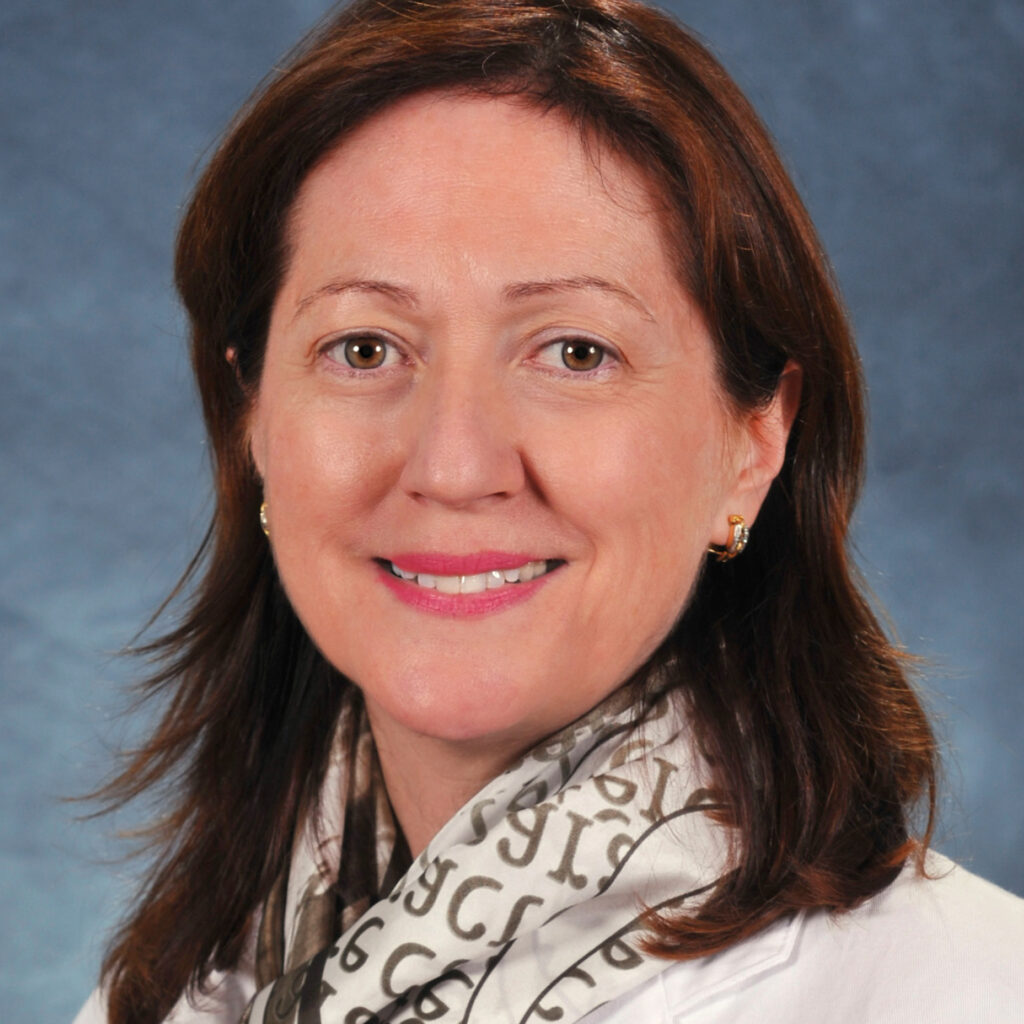
ALT-CHAIR: Lucia Languino, PhD. Professor, Cancer Biology
Thomas Jefferson University
PhD, Pharmacology
Negri Pharmacological Research Institute, Italy
Dr. Languino joined Yale Pathology in 1994 as an assistant professor focusing on integrin-mediated mechanisms of cancer progression and obtaining an R29 NCI award, a DOD award, and the first of many NCI R01 awards. In 2000, she was promoted to associate professor, and in 2002 moved to the Department of Cancer Biology at the University of Massachusetts Medical School as a tenured professor. Her unique expertise in signaling mediated by adhesion receptors and in prostate cancer progression offered a novel dimension to transduction and integration of regulatory signals.
In 2010, Dr. Languino moved to Sidney Kimmel Medical College, working with other scientists in the comprehensive Prostate Cancer Program. She has been a member and discussion leader of NCI panels and chartered member of the NIH Tumor Progression and Metastasis Study Section (2014-2018). Her scientific contributions have been recognized internationally in over 150 papers and by NCI awards, DoD awards, the Prostate Cancer Foundation, Biome Award, and the Dean Transformational Award. Her most recent experiments on exosome-mediated cancer progression are recognized as high-impact studies that investigate novel aspects of cancer biology. She is the Director of the Jefferson Graduate School of Biomedical Sciences PhD Program in Genetics, Genomics, and Cancer Biology.
Research Interests: Integrin-mediated mechanisms that promote prostate cancer progression, the role of cell adhesion receptors in phenotypic changes of prostate cancer cells, cellular and molecular characterization of the metastatic process of prostate cancer, regulatory signals mediated by extracellular vesicles and exosomes, in aggressive prostate cancer.
DIVERSITY AND INCLUSION (DAIC)
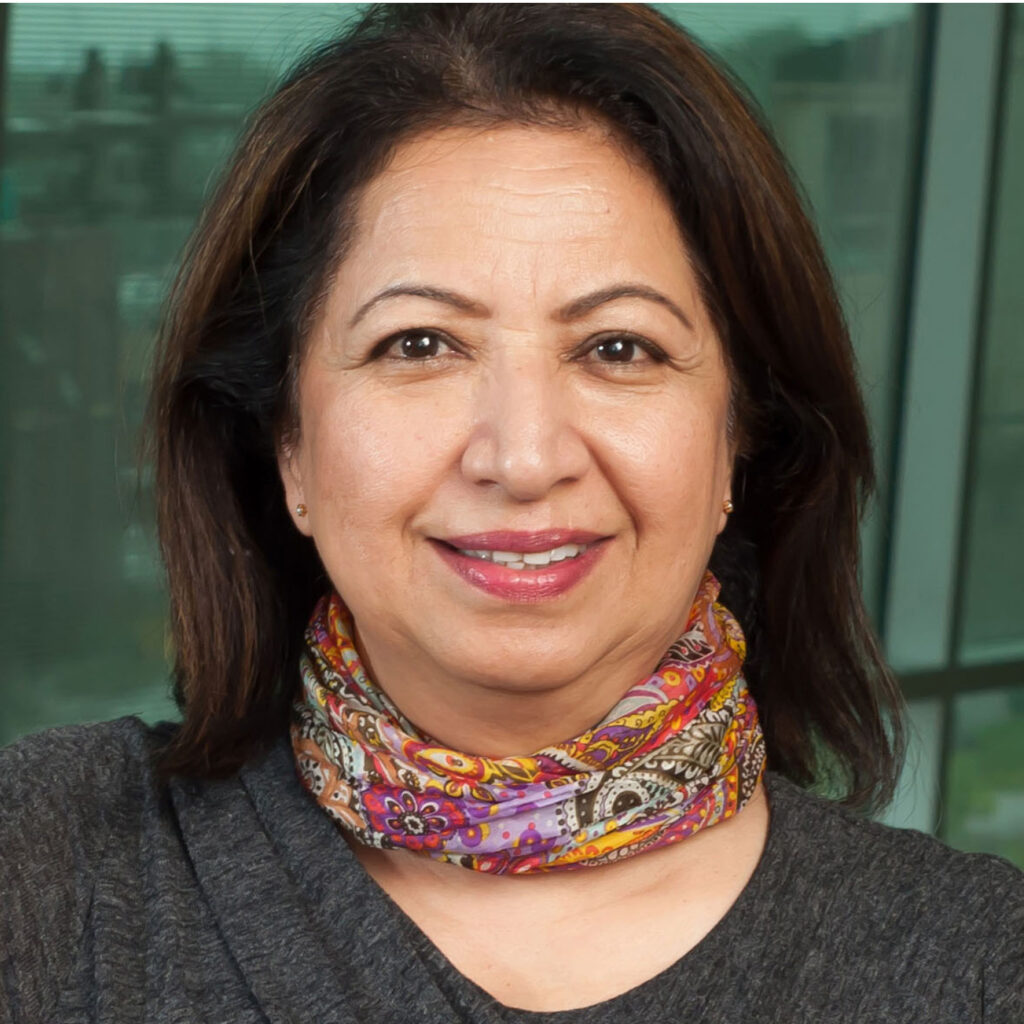
CHAIR: Shilpa Buch, PhD. Professor, Department of Pharmacology & Experimental Neuroscience
University of Nebraska Medical Center (UNMC)
PhD, 1982, Microbiology
University of Baroda, India
Dr. Buch’s post-doctoral training focused on the pathogenesis and therapeutic approaches to the toxic effects of oxygen therapy in premature babies. She then became involved in HIV and NeuroAIDS research at the Kansas University Medical Center where she spearheaded the program in SIV pathogenesis and drug abuse. Throughout her career, Dr. Buch has contributed to an increased understanding of the molecular basis of HIV-associated neurocovitive disorders (HAND) which have greatly increased our appreciation for interactions among glia, neurons, and components of the blood-brain barrier in HAND. At UNMC, Dr. Buch received the scientist laureate award for her outstanding research contributions to the field.
Dr. Buch has published over 145 peer-reviewed articles in the area of molecular pathogenesis of HIV in many highly regarded journals, has secured federal and local grants to support her research on HIV pathogenesis, and has mentored students of every level, from undergraduates to junior faculty.
Research Interests: Identifying novel therapeutic strategies that may enhance neuronal function and survival in NeuroAIDS with possible implications in other neurodegenerative diseases.
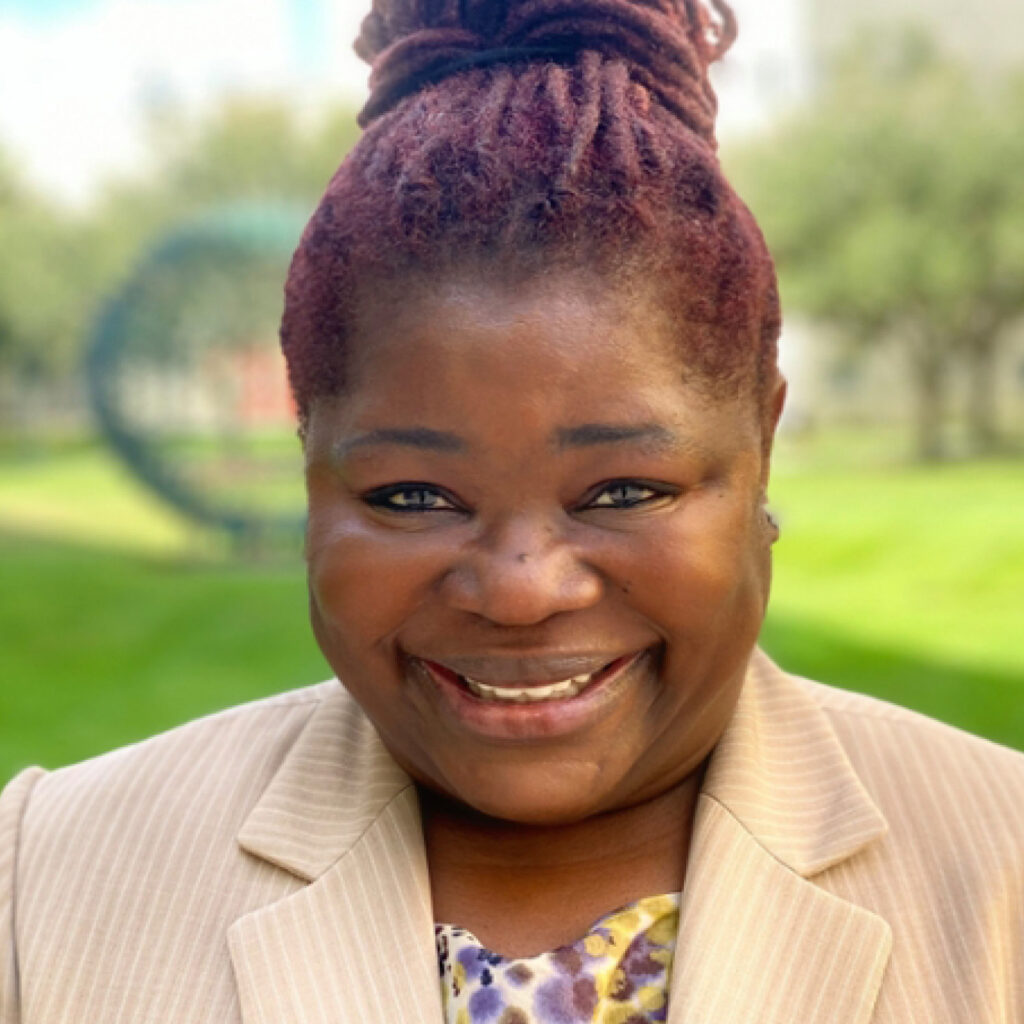
CO-CHAIR: Andrea Raymond, PhD. Associate Professor & ODEICI Coordinator for Biomedical Sciences Career Development
Herbert Wertheim College of Medicine, Florida International University
PhD, 2005, Microbiology & Immunology
Temple University School of Medicine
Dr. Raymond’s research focuses on understanding the impact and role of EVs in the pathogenesis of neurotropic viruses specifically, HIV and Zika Virus. EVs include microvesicles and exosomes both of which have been shown to modulate immune responses, disrupt cellular functions, and contain several oncological biomarkers critical for some cancer diagnostics. Her lab was one of the first to demonstrate a potential role for exosomal EVs in HIV-associated neuropathogenesis, showing that in vitro, HIV-infected cells release EVs containing the HIV Nef protein and demonstrating ex vivo the presence-containing EVs in the serum of aviremic HIV-infected subjects. Dr. Raymond seeks to understand how the content (and function) of brain cell-derived EVs vary upon HIV infection and/or opiate exposure.
Research Interests: Identification of EV-based associated with biomarkers; HIV neuropathogenesis, Opiate addiction.
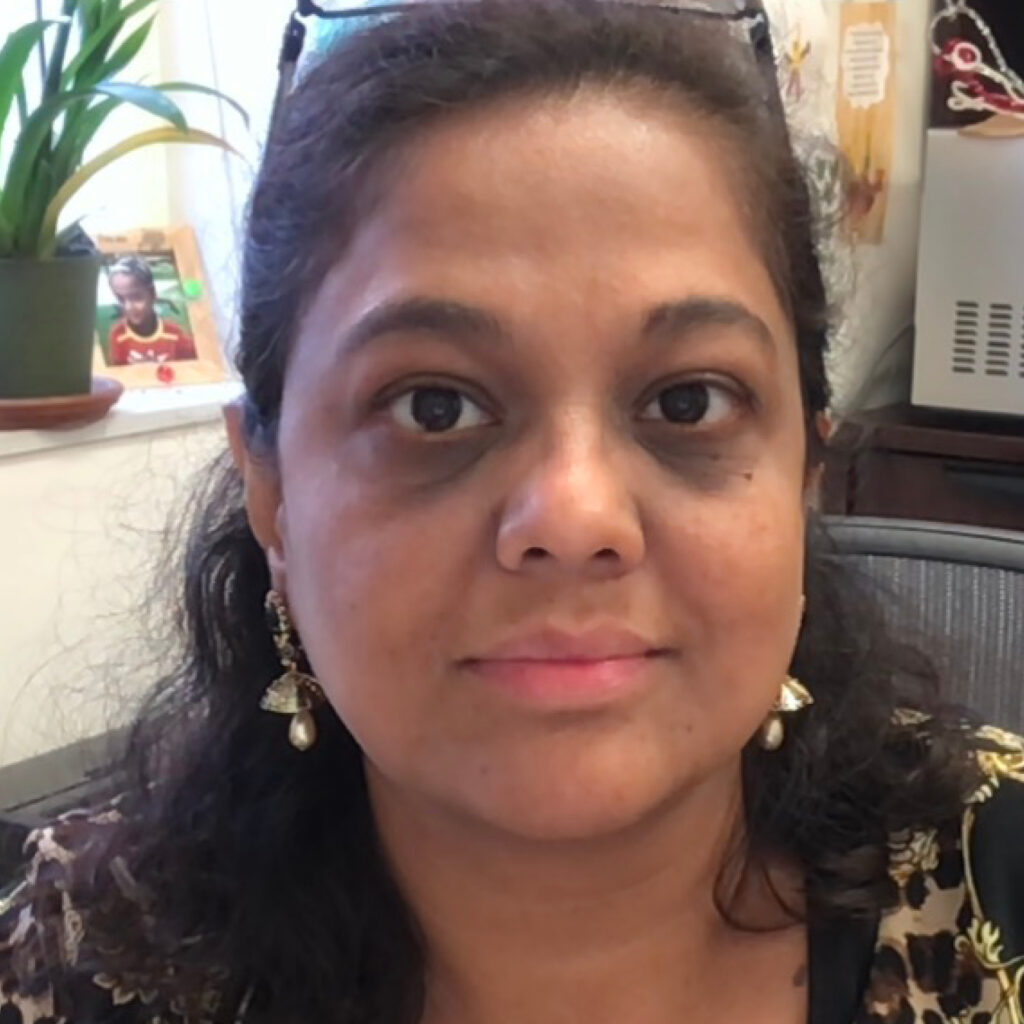
ALT-CHAIR: Hameeda Sultana, PhD. Associate Professor , College of Veterinary Medicine
University of Tennessee
PhD, 2004, Medical Biochemistry
University of Cologne
Dr. Sultana received postdoctoral training in vector-borne diseases at Yale University School of Medicine and the Howard Hughes Medical Institute. She was promoted to Associate Research Scientist after receiving an independent RO3 award from NIH/NIAID to study tick-pathogen interactions. In 2010, she obtained a tenure-track assistant professor position at the Center for Molecular Medicine, Department of Biological Sciences, Old Dominion University (ODU) and in 2012, she received tenure and promotion to associate professor at ODU. Her research is in the field of vector-borne diseases where she laid the foundation for novel investigations on arthropod exosomes in facilitating transmission of tick and mosquito-borne flaviviruses from vector to the vertebrate host. Her laboratory was the first to provide evidence that tick/mosquito-borne flaviviruses use arthropod-derived exosomes for transmission of full-length RNA genomes, proteins/poly-proteins from vector to the mammalian cells and that these viruses use exosomes for dissemination within the vertebrate host. She has received R01 funding from NIH/NIAID to continue this line of research on arthropod exosomes.
In 2020, she moved her research laboratory to University of Tennessee at Knoxville where she is a tenured associate professor in the Department of Biomedical and Diagnostic Sciences and continues her research on arthropod exosomes and flavivirus host interactions. Dr. Sultana has received numerous awards and has won the ATCC’s 2022 Innovation Challenge for her innovative research on the function of hTERT MSC exosomes on flavivirus replication.
Dr. Sultana has published in several high-impact journals and serves as an editorial board member and a peer-reviewer for many Microbiology and Virology journals. She also supports NIH study sections and special emphasis panels as a potential reviewer.
Research Interests: Various aspects of infectious diseases and host-pathogen interactions that are directly related to human and animal health, specifically vector-borne viral diseases involving flaviviruses as pathogens and ticks/mosquitoes as the primary vectors of medical importance.
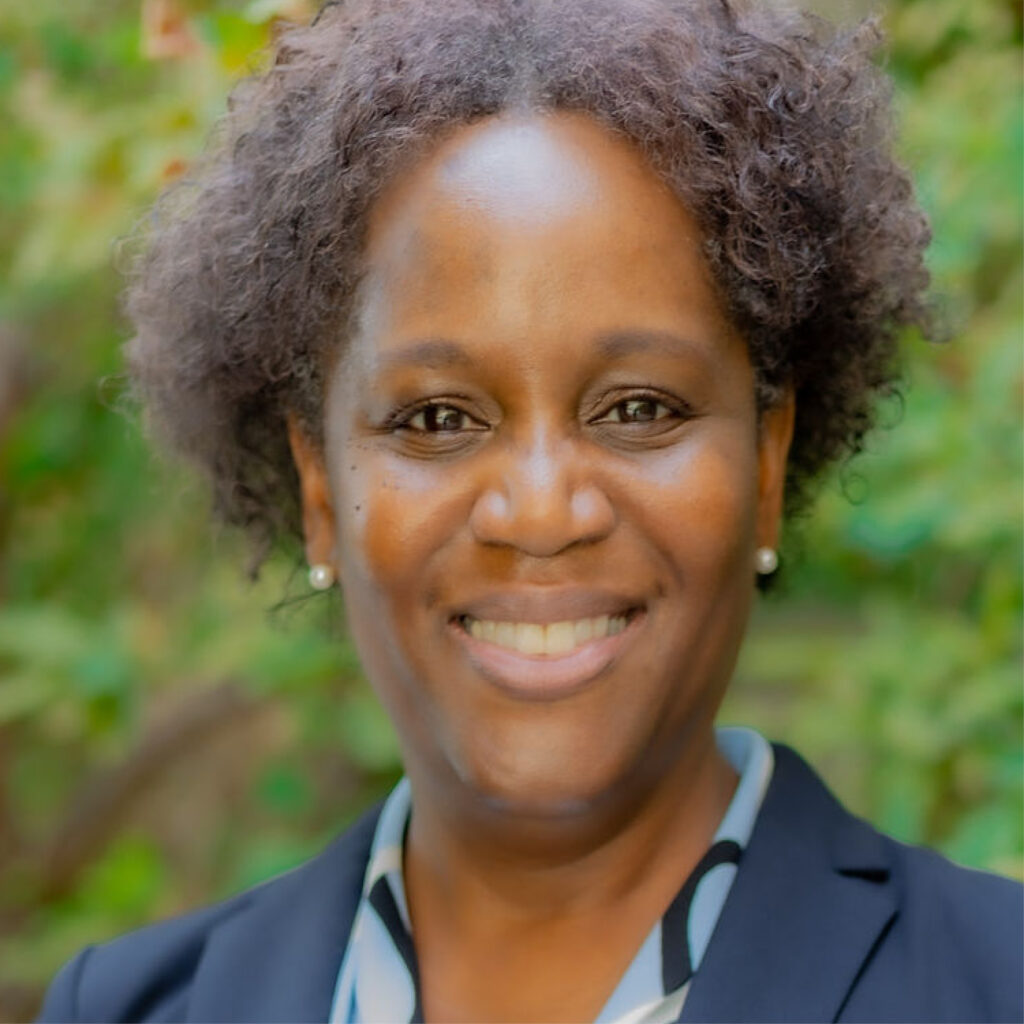
ALT-CO-CHAIR: Amanda Brown, PhD. Associate Professor of Neurology
Johns Hopkins School of Medicine
PhD, 1996, Microbiology & Immunology
Albert Einstein College of Medicine, Yeshiva University
Dr. Brown’s research, funded by the National Institute of Neurological Disorders and Stroke and the National Institute of Mental Health, is centered on identifying the mechanisms and consequences of HIV-induced proinflammatory signaling in the central nervous system.
She received a bachelor’s in Biochemistry from the University of California Riverside, a PhD in Microbiology/Immunology from the Albert Einstein College of Medicine, and began researching HIV as a postdoc at the Aaron Diamond AIDS Research Center. There she developed innovative tools to study HIV-macrophage biology and persistent and latent infection of these cells. Her group identified secreted phosphoprotein-1 as a putative link between persistent inflammation in the brain and cognitive impairment in HIV-infected individuals. Her lab is currently using the latest innovations in humanized mice and reprogramming myeloid progenitors and single-cell technologies to identify critical cellular pathways and involved molecular mechanisms.
Dr. Brown serves as Co-Director and Director on multiple NIMH- or NINDS-funded programs.
Research Interests: EV/infectious diseases; Mechanisms of chronic inflammation and viral persistence in the central nervous system.
ANNUAL MEETING

CHAIR: Aurelio Lorico, MD, PhD. Professor, College of Osteopathic Medicine
Touro University
MD, 1983, University of Palermo School of Medicine, Italy
PhD, 1990, Experimental & Clinical Oncology
University of Ferrara
Dr. Lorico was mentored in the field of pharmacology by Dr. Alan Sartorelli during his postdoc at Yale University. There, he clarified the biological function(s) of the MRP1 (multidrug resistance protein 1) gene by generating and characterizing MRP1 knockout mice and cell lines. After eight years at Yale, he became a senior scientist at the Norwegian Cancer Center in Oslo, where he designed new strategies for gene therapy of hereditary diseases. Now a professor at Touro University, he has been working on cell-to-cell communication in the tumor microenvironment, particularly cell-cell fusion and extracellular vesicles, and on the development of innovative therapeutic strategies for breast cancer, melanoma, and glioblastoma.
Research Interests: Mechanisms of cell-cell communications in cancer with emphasis on EVs; Nuclear transport of EV cargo and viruses; Design, synthesis, and evaluation of anti-cancer and anti-viral activity of novel small molecules; Evaluation of anti-cancer activity of monovalent anti-CD9 antibodies.

CO-CHAIR: Mark Santos, PhD. Research Laboratory Scientist
College of Osteopathic Medicine, Touro University
PhD, 2014, Pathology/Experimental Pathology
University of Mississippi Medical Center
Dr. Santos began his postdoctoral fellowship at Roseman University in Las Vegas where he identified the fate of extracellular vesicles upon entering target cells. His projects have focused on characterizing the proteins involved in transporting extracellular vesicle cargo into the nucleus of cells and developing techniques to visualize these vesicles in fixed and live samples by super-resolution STORM and confocal microscopy. Dr. Santos has also studied the effects of extracellular vesicle uptake on gene expression levels, and he hopes to establish extracellular vesicles as potential biomarkers in cancer and other diseases.
Research Interests: Extracellular vesicle characterization; Cell-to-cell communication; Anti-cancer and anti-metastasis drug development; Super-resolution STORM microscopy.
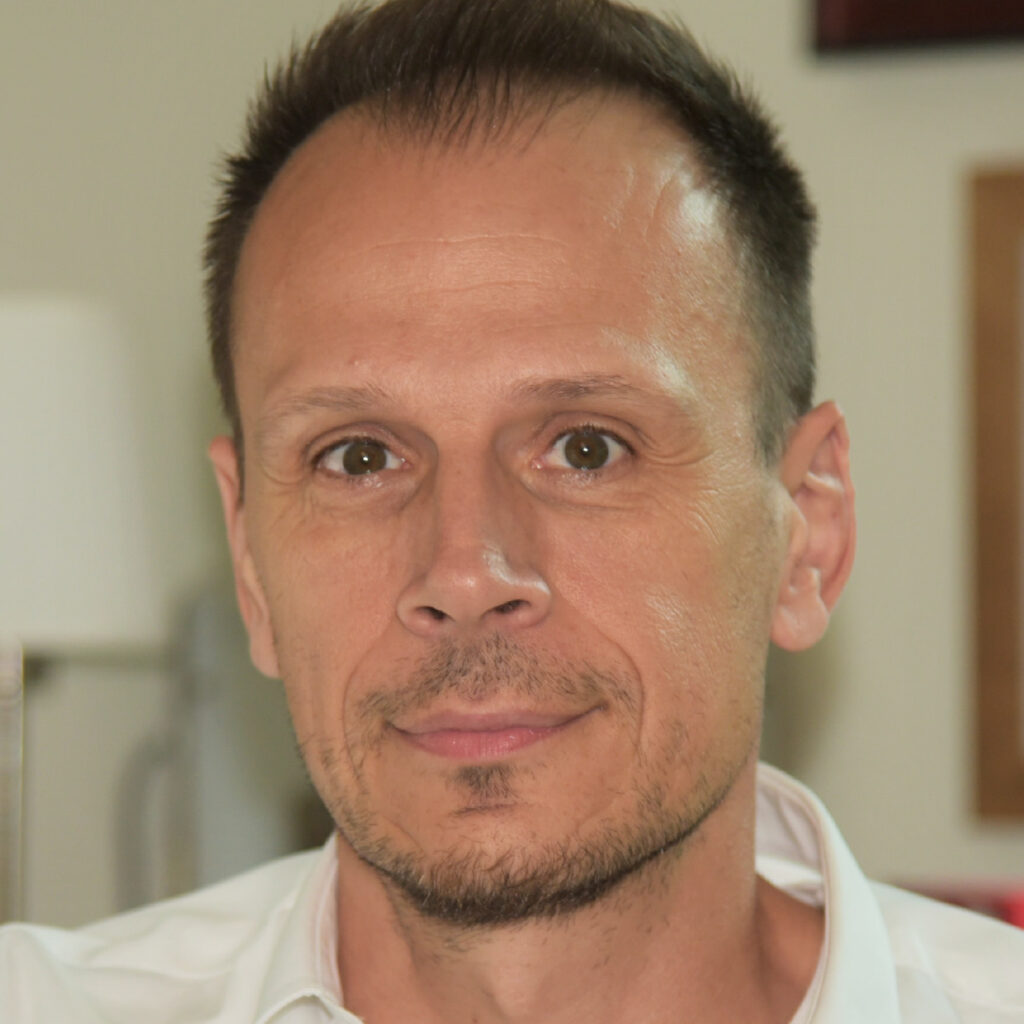
ALT-CHAIR: Olivier Loudig, PhD.
Associate Member, Center for Discovery and Innovation
Hackensack Meridian Health
PhD, 2003, Biochemistry
Queen’s University, Ontario
Dr. Loudig’s work is focused on the development of biomarkers for early detection of lung, prostate, and breast cancers. He received his training as a postdoctoral fellow at the Albert Einstein College of Medicine where he established his first laboratory. As a junior faculty, he developed molecular assays to profile RNAs from archived formalin-fixed paraffin embedded tissues, and completed large-scale molecular epidemiological studies on benign breast lesions, DCIS lesions, and invasive breast tumors. Dr. Loudig is interested in leveraging the differential expression of microRNA and protein biomarkers for early detection of disease by purification of tissue-specific extracellular vesicles. His laboratory recently developed the EV-CATCHER assay, an ultra-sensitive approach for targeted capture of cell-specific and species-specific circulating extracellular vesicles, which he has been using to purify EVs and to profile their miRNA cargos from diverse biofluids. For example, during the SARS-CoV-2 pandemic, his laboratory was one of the first to describe neutralizing circulating EVs in the serum of patients recovered from COVID-19 infections.
Research Interests: Extracellular vesicles; microRNAs; mRNAs; Lung cancer; Exhaled breath condensates, Early cancer detection.
GRANT-FUND COMMITTEE

Ursula Saundau, PhD, Instructor
Oregon Health & Science University
PhD, 2006, Biomedical Neuroscience
Colorado State University
Dr. Sandau studies the role of extracellular vesicle miRNAs as biomarkers for and mediators of neurological dysfunction in Alzheimer’s disease. She has identified a set of extracellular vesicle miRNAs in human cerebrospinal fluid (CSF) with increased expression in Alzheimer’s disease. These miRNAs are predicted to repress the translation of proteins integral to synaptic transmission via their roles in presynaptic neurotransmitter release and postsynaptic NMDA receptor trafficking and signaling. Her current studies are aimed to demonstrate that in Alzheimer’s disease the miRNAs increased in CSF extracellular vesicles are also increased in the brain and relate to abnormal synapse formation. She also has a collaboration with the Oregon Health & Science University Methamphetamine Research Center to investigate the potential of plasma extracellular vesicles and their miRNA cargo to serve as biosignatures for neuropsychiatric impairments that occur in addiction and impede recovery.
Research Interests: Alzheimer’s disease; Extracellular vesicles; MiRNAs; Synaptic plasticity and transmission

Navneet Dogra, PhD. Assistant Professor, Genetics and Genomic Sciences and Pathology, Molecular and Cell Based Medicine, Member of the Icahn Genomics Institute
Mt. Sinai Hospital
PhD, 2014, Chemistry & Biochemistry
Southern Illinois University
Dr. Dogra has held positions at IBM Research and Yale University to drive translational research in “liquid biopsy in cancer” and “drug delivery” by bringing together clinical experimental oncology and the development of novel tools for the biosensing of genetic markers. Dr. Dogra recently filed for two US patents relating to “exosomes nanoparticles assisted drug delivery” and “tumor heterogeneity”.
Research Interests: Exosomes and extracellular vesicles; Cell-Free DNA, RNA; Proteins, bioengineering, and viruses.

Susmita Sil, PhD. Assistant Professor, Department of Pharmacology & Experimental Neuroscience
University of Nebraska Medical Center
PhD, 2016, Neuroscience, University of Calcutta, India
Dr. Sil investigates the regulatory role of long non-coding RNAs on drugs of abuse/HIV in glial cells mediated neurodegeneration involving extracellular vesicles. Some of her recent studies focused on the HIV-associated co-morbidity of Alzheimer’s Disease. She has shown that HIV & opiates can induce astrocytic amyloidosis through a novel interaction of hypoxia-inducible factor-1 with long non-coding RNA BACE1-AS. Dr. Sil has published in 46 high-quality peer-reviewed journals including PlosBiology, Molecular Aspects of Medicine, and the Journal of Extracellular Vesicles.
Research Interests: Investigating the effects of different drugs of abuse and HIV on the mechanisms involved in glial cells mediated neurodegeneration involving cellular-crosstalk by extracellular vesicles; Investigating different molecular mechanisms leading to neuronal injury and dementia in drug addicts, HIV patients, and other neurodegenerative diseases.
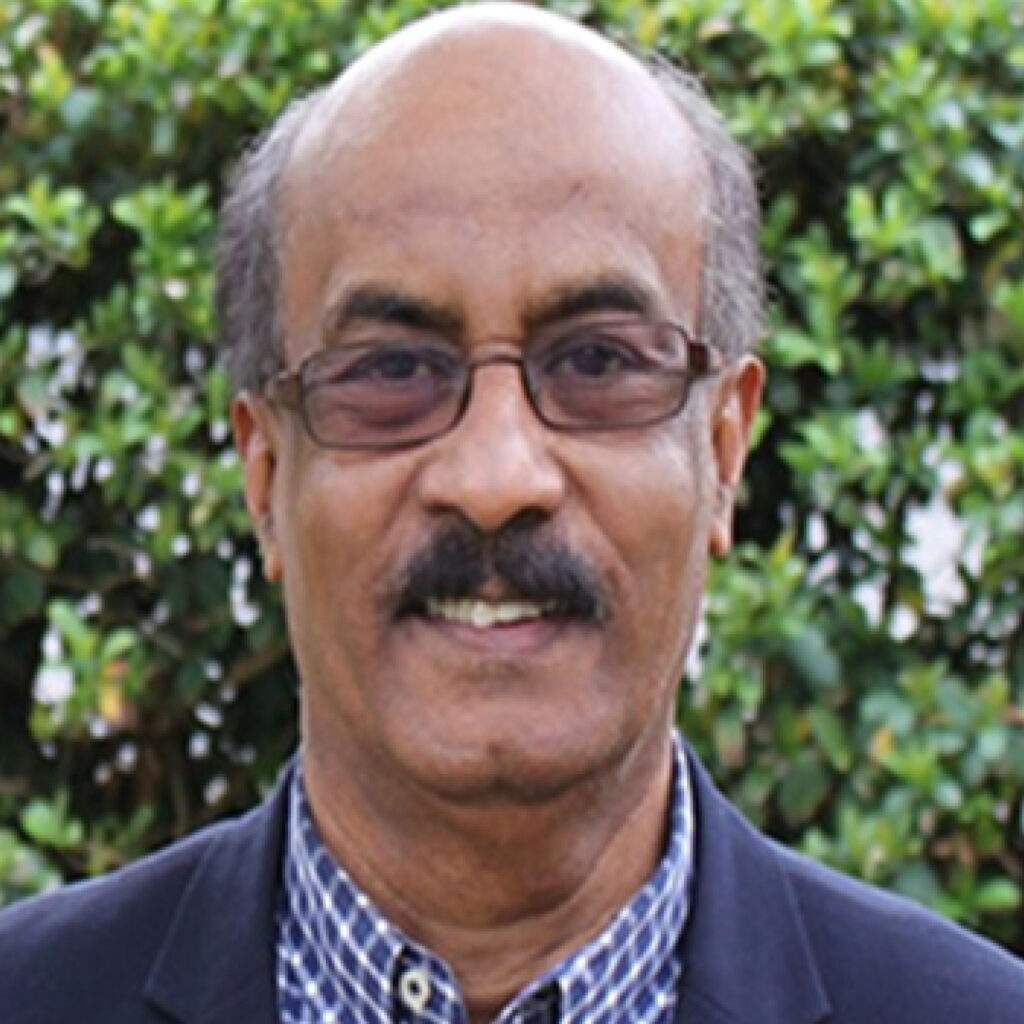
Prasun Datta, PhD. Associate Professor of Microbiology and Immunology
Tulane University
PhD, 1990 Molecular Cytogenetics
Calcutta University
Dr. Datta’s research focuses on elucidating the role of metabolism in HIV-1 biogenesis and survival in latent CNS reservoirs, and the effects of HIV-1 induced neuro-inflammatory cytokines and small extracellular vesicles released from HIV-1 infected macrophage and microglia on the regulation of astrocyte glutamate transporter, EAAT2 and neurodegeneration. He is also interested in assessing the impact of substances of abuse such as opiate and cocaine on the crosstalk between cellular metabolism and epigenetics in HIV-1 biogenesis in macrophage and microglia and astrocyte EAAT2 and non-coding RNA regulation. We are also interested in characterizing Outer Membrane Vesicles (OMV) from the Saliva of rhesus macaques infected with SIV to elucidate OMV interaction with immune cells and other cells in the oral cavity.
Research Interests: HIV-1/SIV; Extracellular vesicle; miRNA; Neurodegeneration; Saliva OMVs.

